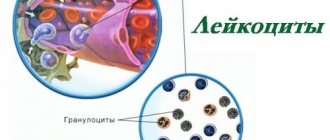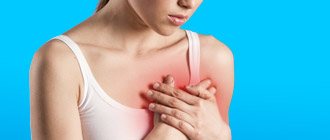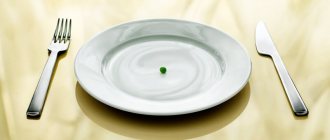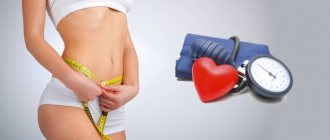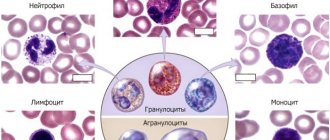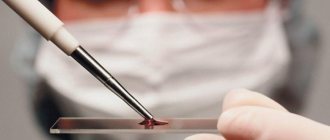Anhedonia
Anhedonia is a technical term used more often by psychiatrists than in everyday life. This concept refers to the inability to experience pleasure, and is the main symptom of depression. A person with anhedonia—and depression—seems to lose all interest in pleasures such as food, social interaction, and sex. One survey found that 40 to 50 percent of both men and women diagnosed with major depression experienced decreased sex drive and reduced arousal levels. Fortunately, depression is treatable; Unfortunately, almost all medications used to treat depression have side effects, either causing sexual dysfunction or causing problems in this area in those who previously did not have them. This side effect is most likely due to a change in the balance of neurotransmitters such as serotonin, dopamine and norepinephrine; as well as testosterone, prolactin and thyroid-stimulating hormone.
The connection between hypertension and potency in men
The culmination of sexual intimacy for a man is an erection.
It is accompanied by a strong rush of blood to the genital organ with subsequent outflow. The problem arises due to the fact that in hypertensive patients the blood vessels are less elastic than in healthy men and their blood flow is slower.
Even when experiencing a strong desire, a man with high blood pressure often does not have a normal, persistent erection. According to statistics, almost half of all hypertensive men experience difficulties in this regard. Due to hypertension, blood vessels lose the ability to contract and unclench when needed. The erection becomes sluggish and short-lived.
Hypertensive patients can be sexually active:
- limiting oneself in loads during intimate contact;
- taking a more passive position in sex;
- entering into a relationship with an active partner who prefers “upper” positions.
The decrease in male libido is greatly influenced by addiction to bad habits and other concomitant diseases.
Effects of antidepressants on sexual function
According to a study published in the Journal of Clinical Psychiatry, the highest rates of sexual dysfunction—more than 40 percent—are associated with the drugs Remeron (Mirtazapine) and Paxil (Paroxetine).
Levels between 30 and 40 percent correspond to the drugs Celexa (Citalopram), Prozac (Fluoxetine), Effexor (Venlafaxine), and Zoloft (Sertraline). Researchers associated the lowest rates of sexual side effects—between 20 and 30 percent—with Wellbutrin (Bupropion) and Serzone (Nefazodone). The latter has been shown to be hepatotoxic and is therefore no longer produced. Currently, its place has been taken by the drug of the same group, Trittico (Trazodone).
Sexual side effects observed with tricyclic antidepressants include decreased desire and libido. The “new” SSRIs (selective serotonin reuptake inhibitors) seem to have an effect on orgasm. Other sexual side effects for either of these two types of antidepressants include erectile dysfunction and ejaculation problems in men and decreased arousal and lubrication in women.
It is believed that about 90 percent of patients with depression stop taking medications too early because of sexual side effects.
Review of the most effective means
The most effective and safe drugs for the treatment of impotence in hypertension:
Dapoxetine (Priligy)
10 film-coated tablets, 60 mg, in blisters. Price: from 1,000 rubles per package (5 tablets).
Contraindications: allergies to the active substance or other components, heart disease, lactose intolerance, concomitant use of MAO inhibitors, thioridazine and some other drugs, disorders of the kidneys and liver. The medicine is not intended for women and patients under 18 years of age. It is not recommended to use simultaneously with narcotic or sedatives, or with alcohol.
Alprostadil
Ampoules 0.02 mg (20 mcg) alprostadil, 10 pieces per package (used intravenously and intra-arterially). Price: from 5,700 rubles.
Contraindications: allergy to the active substance or other components, myocardial infarction, angina pectoris, arterial hypotension, cardiovascular failure, renal dysfunction, increased blood viscosity, balanitis, urethritis, arterial hypotension, diabetes mellitus, etc.
Phentolamine
Tablets of 0.025 g, 30 pieces in a package; ampoules of 1 ml containing 10 mg of the active drug. Price: currently not on sale in Russia, Ukraine and Kazakhstan. Analogues - Regitin, Rogitin, Dibazin.
Contraindications: allergy to the active substance or other components, myocardial infarction (including a history), ischemia, cardiogenic shock, low blood pressure, angina pectoris.
Papaverine
Release form: tablets of 0.01 g or 0.04 g in blisters of 10 pieces; solution for injection 2% in ampoules of 2 ml (10 pieces per package). Price: tablets – 10 rubles; 10 ampoules for injection – 35 rubles.
Contraindications: elderly and children, glaucoma, individual intolerance to components, liver and kidney failure, hypothyroidism, tachycardia, etc.
We advise you to study - Levofloxacin for prostatitis: treatment regimen and features of the drug
Vasoton (L-Arginine)
Is a dietary supplement. Release form: capsules of 500 mg, 50 pcs. in a bottle; capsules 1000 mg, 90 pcs. in a bottle. Price: from 220 rubles per capsule.
Contraindications: individual intolerance, herpes, schizophrenia, pregnancy and lactation.
Impaza
Homeopathic remedy. Release form: lozenges of 10, 20 or 40 pcs. packaged. Price: from 385 rubles per tablet.
Contraindications: intolerance to the constituent components of the drug, lactose intolerance.
Tribestan
Release form: film-coated tablets, 250 mg. 10 pieces. 6 or 18 blisters in a cardboard box. Price: on average 2,730 rubles.
Contraindications: pregnancy, lactation, age under 18 years, intolerance to the drug components.
Verona
Release form: capsules of 20 or 60 pieces in a polymer bottle, 1 bottle is included in a cardboard box. Price: from 320 rubles per capsule.
Contraindications: hypersensitivity to the components of the drug.
Ways to fix the problem
When a patient reports problems to a doctor, the doctor has several options to change the treatment regimen. First, the doctor may recommend “follow-up monitoring.” After all, the intensity of some problems decreases or disappears over time. The doctor may change the time of taking the drug so that it occurs after the expected time of sexual activity. Eventually, the doctor may lower the dose of the medication or allow a one- or two-day "holiday" - a break from taking the drug - each week.
If, despite everything, problems persist, the doctor may choose a drug with a low percentage of side effects. Wellbutrin (Bupropion) is undoubtedly the drug of choice for both people at high risk of side effects and those who are concerned about sexual dysfunction. Wellbutrin is a dopamine norepinephrine reuptake inhibitor (NDRI) and is not recommended for use in patients with seizure disorders, anorexia or bulimia, or in those taking Zyban, a smoking cessation medication (Zyban also contains Bupropion). Other drugs with relatively low rates of sexual side effects include Amitriptyline and Duloxetine (Cymbalta).
Switching from one drug to another must be made with careful attention: it is necessary to accurately determine the drug that best suits the patient. It must be borne in mind that in some cases a relapse of depression or withdrawal syndrome may occur, and this is very dangerous.
In many cases, the optimal solution is to add a drug to the treatment regimen to relieve sexual dysfunction. For men, a natural choice is a substance from the phosphodiesterase 5 inhibitor class, such as Viagra, Cialis or Levitra.
A randomized controlled trial published in the Journal of the American Medical Association reported that 55 percent of men who took Viagra (Sidenafil) before sexual intercourse reported normalization or significant improvement in sexual function and a reduction or disappearance of symptoms of sexual dysfunction associated with sexual intercourse. taking antidepressants.
Drugs used to treat erectile dysfunction in men are not approved for the treatment of female sexual dysfunction. However, a study published in July 2008 in the Journal of the American Medical Association reported that premenopausal women experiencing side effects associated with SSRI drugs reported significant improvements in sexual function over the eight weeks they took Viagra at one time. - two hours before sexual activity.
About 72 percent of women who took Viagra in the study reported significant improvements in sexual function, compared with 27 percent who were given a placebo. No subjects experienced a recurrence of dysfunction or a recurrence of a major depressive episode.
Erectile dysfunction is an interdisciplinary problem. According to the US National Institutes of Health, erectile dysfunction (ED) is the inability to achieve and/or maintain an erection sufficient to satisfy sexual needs. ED is considered one of the most common sexual disorders in men.
The Massachusetts Male Aging Study (MMAS, 1994) found that 52% of men aged 40 to 70 suffered from ED to some degree. There is a clear linear relationship between age and ED. In the MALES study, the incidence of ED in men aged 60-69 years was 2 times higher than in men aged 40-49 years (30% versus 15%). According to the CANSED (Canadian Study of Erectile Dysfunction) study [1], in outpatient practice, about 50% of men aged 40-88 years suffer from ED.
Erection can be considered a complex neurovascular process, which can be disrupted by various diseases and conditions. In the pathogenesis of ED, there are several main mechanisms: psychogenic, vascular, hormonal, neurogenic. Often, with one disease, there may be several mechanisms for the formation of ED [2]. Somatic diseases associated with various types of ED are presented in table. 1.
Male sexual dysfunction has gone beyond urology and has been actively discussed in recent years by cardiologists, neurologists, endocrinologists and general practitioners.
Long-term use of a number of groups of drugs also negatively affects erectile function (Table 2).
Most large epidemiological studies devoted to the study of ED have revealed a clear connection between its occurrence and risk factors for cardiovascular diseases (CVD), the most important of which are arterial hypertension (AH), dyslipidemia, abdominal obesity, subclinical inflammation, impaired carbohydrate metabolism and systemic homeostasis - are highlighted in the concept of “metabolic syndrome” (MS). All these factors are closely interrelated and can aggravate each other [2]. In recent years, the connection between metabolic syndrome as a risk factor for CVD with ED and androgen deficiency has become frequently discussed [3].
Currently, real practice has confirmed that most cases of erectile dysfunction are associated with CVD caused by atherosclerosis and deficiency of male sex hormones.
Men with MS are most susceptible to ED. Moreover, clinical studies have shown an increase in the frequency and severity of ED as the number and duration of MS components increases. Erectile dysfunction in men suffering from MS, in most cases, is vascular, atherosclerotic in nature and can be considered as one of the vascular complications of this syndrome. This medical and social problem, which has a huge impact on the quality of life and fertility of men of reproductive age, has in recent years been called the “barometer of men’s health” and the “iceberg of systemic vascular pathology” [1–6].
Atherosclerosis and ED.
Previously, psychological problems were considered the main cause of sexual dysfunction in men, but over time this opinion has changed. Thus, in the vast majority of patients, ED is caused by vascular diseases of atherosclerotic origin. In recent years, the hypothesis that ED is an early marker or precursor of CVD caused by atherosclerosis has been actively discussed. Many studies [7, 8] reliably show the commonality of risk factors for ED and CVD; these diseases often develop in parallel.
With hyperlipidemia, hypertension, impaired carbohydrate and purine metabolism, smoking and obesity, processes occur that lead to increased oxidation of LDL cholesterol, decreased NO synthesis, activation of adrenergic vasoconstrictor effects, release of biologically active substances - proinflammatory cytokines, growth factors and adhesion molecules, which entails represents inflammation in the vascular endothelium, endothelial dysfunction, vasoconstriction, hypercoagulation, hypofibrinolysis and, ultimately, the formation of an atherosclerotic plaque in the vessel wall [9, 10]. A meta-analysis of prospective studies showed that CVD risk factors play an important role in the development of ED (Table 3).
In 90-100% of cases, ED precedes the development of acute coronary syndrome, coronary heart disease and angina pectoris. Moreover, the interval between these events is 1-3 years. This can be explained by the fact that with atherosclerosis, changes occur in all arterial basins, but first of all, clinical signs of blood flow disturbances appear in those target organs where the cross-section of the arteries is smaller. The diameter of the penile arteries is 2-3 times smaller than the coronary arteries, and 3-4 times smaller than the carotid ones, which determines the possibility of ED preceding the development of coronary and cerebral vascular events [8].
Androgen deficiency and ED.
One of the most important factors contributing to the formation of ED is androgen deficiency. The main male sex hormone, testosterone, is produced by Leydig cells of the testes and partly by the adrenal cortex and, like all steroid hormones, is synthesized from cholesterol. In men with ED, a decrease in testosterone levels is diagnosed in 37% of cases [11, 12].
A large number of studies are devoted to the relationship between testosterone levels and MS. Moreover, androgen deficiency in MS can be either an independent disease associated with the natural processes of aging, or a consequence of disorders within this syndrome, leading to defects in the synthesis, transport or action of testosterone in target organs. Androgens, including testosterone and its metabolite dihydrotestosterone, have various functions; the main one is the formation and maintenance of reproductive function and sexual characteristics, but there are also metabolic effects [11]. Recent studies have convincingly demonstrated that the level of testosterone determines the degree of insulin resistance, the rate of glucose utilization, blood lipid parameters, as well as the intensity of accumulation of abdominal fat tissue. According to domestic researchers [12], among patients with MS, ED is diagnosed in 51.2% of men, while 46.4% of men with ED have the main components of MS. The main components of MS correlate with the level of total testosterone, i.e. As MS worsens, testosterone levels decrease; at the same time, an inverse relationship between the risk of MS and the amount of testosterone has been established [1, 13-15].
Thus, metabolic disorders, hypogonadism, ED, CVD and atherosclerosis have many points of contact in the mechanisms of pathogenesis, mutually determining the effects of the course and common targets of influence both at the biochemical and clinical levels. And the logical conclusion is that drugs used in the treatment of one of these conditions or diseases may not always have only a positive effect on the course of others.
The effect of statin therapy on erectile function (Table 4).
The need to use statins for the treatment, primary and secondary prevention of diseases associated with atherosclerosis is beyond doubt.
In recent years, limited data have emerged on the use of statins in men and associated ED. Moreover, researchers provide conflicting results. On the one hand, there is a positive trend in erectile function while taking statins. According to Saltzman et al., treatment with atorvastatin improved erectile function in 8 of 9 patients with hypercholesterolemia. This was combined with a decrease in TC and LDL cholesterol levels. On the other hand, according to Solomon et al., in men with high cardiovascular risk, lipid-lowering therapy with statins led to a deterioration in erectile function, assessed by IIEF. Similar data were obtained in a number of other studies [16, 17]. These results can be explained by the combination of the main mechanism of action of statins, the presence of their pleiotropic and metabolic effects and the factors that form ED.
Statins are competitive antagonists of hydroxymethylglutaryl-CoA reductase (HMG-CoA reductase), the main enzyme in the reaction of cholesterol synthesis from acetyl coenzyme A (CoA) and its conversion to mevalonic acid. The main lipid-lowering effect of statins is to reduce the level of total cholesterol by reducing its most atherogenic fraction - LDL cholesterol. But, as already noted, steroid hormones are synthesized from cholesterol, in particular affecting erectile function. A decrease in the synthesis substrate obviously entails a decrease in the product. Thus, some few publications contain information about a decrease in testosterone levels associated with statin therapy, which can cause or worsen ED.
Statins can also have a negative impact on the entire range of diseases and conditions discussed due to their negative effect on insulin resistance and the glycemic profile. However, there are a number of properties of statins that interfere with the mechanisms leading to ED. The main one is the main lipid-lowering effect. By reducing the level of atherogenic lipids, statins block the leading link in atherogenesis and slow down the formation of atherosclerotic plaque. By blocking the synthesis of mevalonic acid, statins improve endothelial function, helping to normalize the vasomotor response by increasing NO production. It has also been shown that drugs of this class have a positive effect on the barrier function of the endothelium and disruption of the migration of macrophages into the vascular wall, which in turn inhibits the formation of atherosclerotic plaque.
Statins have an indirect effect on the state of the blood coagulation system, inhibiting platelet aggregation and increasing fibrinolytic activity. This contributes to improved blood circulation, particularly in the penile arteries, which helps normalize erectile function. Having the ability to bind to phospholipids that make up LDL cholesterol, and thereby reduce their ability to oxidize, statins inhibit the entire cascade of endothelial damage.
The anti-inflammatory properties of statins have been demonstrated in a number of large randomized trials. There is a large evidence base on their ability to reduce the levels of pro-inflammatory agents and increase the level of anti-inflammatory agents, thereby inhibiting inflammation in the vascular wall, interrupting the process of atherogenesis at the initial stages or reducing its activity.
The mechanisms by which statins lower blood pressure are not fully understood. However, it can be assumed that the ability of statins to stabilize vascular endothelial dysfunction may lead to an improvement in endothelium-dependent dilatation and a decrease in the activity of neurotransmitters that have a vasoconstrictor effect. Normalizing blood pressure also helps improve sexual function.
Thus, there are several aspects of the effect of statin therapy on ED, they are contradictory and multidirectional, and new research remains to be done to assess the ratio of their positive and negative effects in the treatment of patients at high risk of CVD, MS and ED.
In the literature, there is practically no data on studying the complex effect of statins on erectile function, especially the dose-dependent effect, so these issues require further study. The State Scientific Research Center for Preventive Medicine is conducting a 6-month study of the effect of different doses of atorvastatin on the erectile function of men with a high and very high risk of CVD. While taking the study drug every 2 months, erectile function is determined using the IIEF scale, the AMS androgen status questionnaire in men and the quality of life questionnaire, side effects are identified and treatment tolerability is assessed, and a clinical examination of the patient is performed. At the beginning and end of observation, an extended biochemical blood test is performed, risk factors are identified and the overall risk of CVD is determined using the SCORE scale. According to preliminary data, there is a dose-dependent effect of statins on erectile function in men at high cardiovascular risk. Final results will be available in the first quarter of 2012.
conclusions
Erectile dysfunction is one of the early markers or precursors of CVD caused by atherosclerosis. In most cases, it precedes the development of acute coronary syndrome, coronary heart disease and angina pectoris. Major CVD risk factors, including hypercholesterolemia, contribute to the development of erectile dysfunction.
Data on the effect of statins on erectile function are contradictory: some authors note positive dynamics of erectile function while taking statins, while others believe that in men with high cardiovascular risk, lipid-lowering therapy with statins led to a deterioration in erectile function (according to IIEF). Assessing the ratio of positive and negative effects of statins in the treatment of patients at high risk of CVD, MS and erectile dysfunction is the task of new research.
Addition
There is a drug called Sildenafil, which is sold under the name "Pink Viagra" or "Viagra for women." The medicine was created by pharmacologists from Pfizer and is excellent at combating sexual problems that can arise when taking antidepressants.
In August 2015, it became known that the drug Flibanserin, another analogue of Viagra, specially designed for women, had passed all the necessary research and testing and was approved for sale in America. The medication is able to create and enhance desire and sexual desire in the fairer sex. Its creation became known several years ago. Now the drug has appeared on pharmacy shelves under the Abbyi brand.
Choosing a drug to increase potency in hypertension
Despite the fact that many popular drugs for hypertensive patients who want to increase potency remain undesirable, there are a number of medications that are free from this drawback.
This is all thanks to the composition of the products, which include mainly ingredients of plant origin and can have a gentle effect on a man’s erectile function.
Below is a list of the most effective and safe drugs.
BIG ZILLA
Big Zilla is available in the form of drops. At the moment, it remains one of the most effective – it qualitatively increases sexual desire in men.
It has a comprehensive effect on reproductive function, providing a reliable increase in potency. Safety is due to the naturalness of its components.
Includes:
- Ginseng.
- Eleutherococcus.
- Relic Ginkgo.
- Hawthorn.
These herbs and plants guarantee increased sexual activity. This effect is mainly achieved by dilating blood vessels in the corpora cavernosa of the penis, normalizing microcirculation and stimulating the production of endogenous testosterone. Like other drugs for hypertensive men to increase potency, BIG ZILLA does not lead to an increase in blood pressure.
You need to take 10-15 drops 20 minutes before intended sex or a course of 10-15 drops at night every day for 2-3 weeks. Numerous reviews from satisfied men confirm the high effectiveness of the drug. It guarantees good results without harm to health.
Strength of Maral
A domestic drug that is especially popular among hypertensive patients. The product is an excellent alternative to modern foreign capsules and tablets and is no less effective.
Qualitatively enhances potency and helps prolong sexual intercourse. And most importantly, it can be safely used by people with a tendency to hypertension. However, it still doesn’t hurt to consult a doctor first!
The composition of the drug Strength of Maral includes:
- Pantohematogen. Main active substance. Protein that is extracted from the antlers of wild deer (deer). It is a powerful natural stimulator of testosterone synthesis.
- Red root extract. General body stimulant. It has been used as an aphrodisiac since Russian times. Excellently increases potency without affecting blood pressure.
- Vitamin C. A universal element that ensures stabilization of blood vessels throughout the body. An indispensable substance for hypertensive patients. Additionally strengthens the immune system.
The power of Maral is an excellent means for qualitatively improving the sexual activity of men. Sold in capsule form. The price will pleasantly surprise buyers, since it is an order of magnitude lower than foreign analogues. You need to take 1 capsule 1 time per day. The course of such treatment is 2 weeks. Additionally, you can take the drug half an hour before planned sex.
Impaza
Another fairly popular drug that almost everyone has seen in pharmacies or on TV. It should also be considered safe for hypertensive patients. No effect of the drug on blood pressure has ever been recorded.
Impaza is the development of domestic scientists. Refers to homeopathic medicines with a complex but mild effect on male strength.
After its use it is noted:
- Increased sexual desire (libido).
- Increased potency.
- Normalization of the general condition of a man.
- An increase in the amount of ejaculate during ejaculation.
All this is possible due to the unique composition of the drug, the main component of which is affinity-purified antibodies to the enzyme NO synthase. Thanks to these proteins, an increase in the amount of nitric oxide in the blood is achieved.
This substance leads to vasodilation, which increases blood flow to the penis. As a result, erection improves. However, relaxation of arteries and veins does not only occur in the penis, it affects the entire body.
Of course, Impaza cannot be used as an antihypertensive drug - its effectiveness in this regard remains insignificant. However, we can definitely say that the drug remains safe for hypertensive patients.
You need to take 1 tablet of the medicine before sex. If you want to carry out a course of therapy, then you need to take 1 piece 3 times a day
It is important not to swallow the tablets, but to dissolve or chew them in the mouth so that more of the active substance immediately enters the bloodstream
Increasing potency with drugs in hypertensive men is not a significant problem. The pharmaceutical market offers a number of good remedies to combat impotence even against the background of existing hypertension. All that remains is to choose...
Warning
Depression is a life-threatening condition, and following your doctor's orders is critical—even if the medications cause sexual dysfunction. Even despite the obvious fact that problems in the sexual sphere themselves can cause serious psychological distress, loss of self-esteem, deterioration in quality of life - that is, symptoms of depression.
If the medications you are taking to treat depression are preventing you from enjoying life to the fullest, it may make sense to talk to your doctor about it and make changes.
Source: enidnews.com
All materials on the site are presented for informational purposes only, approved by a certified physician, Mikhail Vasiliev, diploma series 064834, in accordance with license No. LO-77-005297 dated September 17, 2012, a certified specialist in the field of psychiatry , certificate number 0177241425770.
